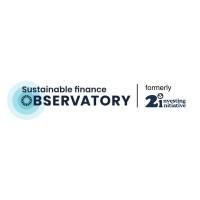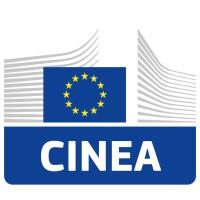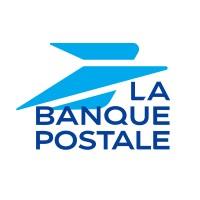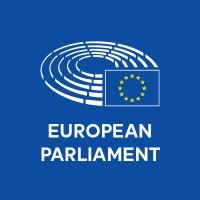Sustainable Finance Observatory (formerly 2°Investing Initiative)
Created in 2012


Up & running (A)
Existing signals show a regular activitySocial networks
4,283 8,826Activities
Entity types
Location
21 Rue de Cléry, 75002 Paris, France
Paris
France
Employees
Scale: 11-50
Estimated: 24
Engaged corporates
30
10 24Added in Motherbase
6 years, 6 months ago
Value proposition
Think tank focusing on mobilizing private financing for the transition.
The Sustainable Finance Observatory is an internationally recognized think tank focusing on mobilizing private financing for the transition. Our mission is to support changes in financial practices among economic actors, driving their impact toward a sustainable societal model. We adopt a pragmatic approach based on studies, tools, and methodologies to directly benefit these economic actors and make a real impact on the economy.
finance, sustainable finance, climate change, sustainability, ESG, risk management, scenario analysis, environmental finance, sustainable investing, Paris Agreement, transition plan, impact investing, and nature-based solutionsOriginal language
Think tank focusing on mobilizing private financing for the transition.
We are an internationally recognized think tank focusing on mobilizing private financing for the transition. Our mission is to support changes in financial practices among economic actors, driving their impact toward a sustainable societal model. We adopt a pragmatic approach based on studies, tools, and methodologies to directly benefit these economic actors and make a real impact on the economy.
Sustainable Finance Observatory - Aligning financial markets with the Paris Agreement goals
https://sustainablefinanceobservatory.org/

| Corporate | Type | Tweets | Articles | |
|---|---|---|---|---|
 Crédit Mutuel Bank, Banking | Crédit Mutuel Bank, Banking | Other 31 Jan 2025 | | |
 INCO Environmental Services | INCO Environmental Services | Other 9 Sep 2024 | | |
 France Assureurs Insurance | France Assureurs Insurance | Other 31 Jan 2025 | | |
 | CINEA - European Climate, Infrastructure and Environment Executive Agency | Other 25 Oct 2021 6 Mar 2025 | | |
 Greenpeace NGO, Think Tank, Non-profit Organizations | Greenpeace NGO, Think Tank, Non-profit Organizations | Other 16 Mar 2024 | | |
 | Gouvernement | Other 31 Oct 2023 | | |
 Office français de la biodiversité Environmental Services | Office français de la biodiversité Environmental Services | Other 19 Oct 2023 | | |
 La Banque Postale Bank, Banking | La Banque Postale Bank, Banking | Other 19 Oct 2023 | | |
 Financial Times Media, Newspaper Publishing | Financial Times Media, Newspaper Publishing | Other 20 Aug 2023 | | |
 European Parliament European Union, Political Organizations | European Parliament European Union, Political Organizations | Other 18 Jan 2023 | | |
[📣REPORT RELEASE]
!?️Is the EU Taxonomy fit for purpose to increase investment in nature-positive activities?
💡To answer this question, Lisa B., Nature-Finance Analyst, and David Cooke, Law and Policy Lead at Sustainable Finance Observatory are delighted to present their latest paper analysing the current state of the EU regulatory framework for fostering investments in the protection and restoration of biodiversity and ecosystems.
The EU Taxonomy was designed as the primary framework to channel capital towards sustainable economic activities, including nature-positive ones. However, in its current form, the taxonomy falls short of incentivising investment in nature-positive activities.
🎯This paper delves into the inconsistencies that currently undermine the effectiveness of the taxonomy as an enabler of nature-positive investments, shedding light on the areas that need to be addressed to further enhance its ability to mobilise finance for nature’s recovery.
Find the link to the report in the comments below 👇
Cc: European Commission, LIFE Programme
#SustainableFinance #EUTaxonomy #Biodivesity
❗PUBLICATION❗
L'ADEME et le Sustainable Finance Observatory publient l'édition 2024 du rapport d’analyse du Climate Transparency Hub (CTH).
👉 Lien vers le rapport en commentaire
De quoi parle-t-on ? 🤔
Depuis la loi « énergie et climat » de 2019 et son article 29, les investisseurs français publient annuellement un rapport dit « 29 LEC » décrivant leurs pratiques de prise en compte des aspects de durabilité dans leurs investissements, notamment leurs stratégies de contribution aux objectifs internationaux Climat et Biodiversité. Ce dispositif est un prolongement de la règlementation européenne SFDR.
L’ADEME collecte ces rapports, les met à disposition du public via le Climate Transparency Hub (CTH) et produit un rapport d’analyse annuel.
Que contient ce rapport ? 📋
✅ Des statistiques agrégées sur l’ensemble des institutions financières assujetties
✅ Des analyses qualitatives sur un échantillon d’assureurs et de sociétés de gestion
✅ Des focus sur les pratiques des acteurs en vue de les faire progresser
Les thèmes qui y sont abordés : 🎯
➡️ Stratégies climat (décarbonation des portefeuilles et financement de la transition)
➡️ Ratios taxonomiques (éligibilité, alignement)
➡️ Parts fossiles des portefeuilles et politiques de sortie des énergies fossiles
➡️ Stratégies biodiversité
➡️ Encours « article 8 » et « articles 9 »
➡️ Indicateurs PAI (SFDR) : émissions de GES scopes 1, 2 et 3 des portefeuilles, mix énergétique de production et consommation, zones sensible biodiversité
📆 Un webinaire de présentation du rapport est organisé aujourd'hui vendredi 28 février à 11h00.
👉 Lien s’inscription en commentaire
❗Analyse de 800+ rapports de durabilité « Article 29 LEC » d’institutions financières françaises ❗
L'ADEME et le Sustainable Finance Observatory publient l'édition 2024 du rapport d’analyse du Climate Transparency Hub (CTH).
De quoi parle-t-on ? 🤔
Depuis la loi « énergie et climat » de 2019 et son article 29, les investisseurs français publient annuellement un rapport dit « 29 LEC » décrivant leurs pratiques de prise en compte des aspects de durabilité dans leurs investissements, notamment leurs stratégies de contribution aux objectifs internationaux Climat et Biodiversité. Ce dispositif est un prolongement de la règlementation européenne SFDR.
L’ADEME collecte ces rapports, les met à disposition du public via le Climate Transparency Hub (CTH) et produit un rapport d’analyse annuel.
Que contient ce rapport ? 📋
✅ Des statistiques agrégées sur l’ensemble des institutions financières assujetties
✅ Des analyses qualitatives sur un échantillon d’assureurs et de sociétés de gestion
✅ Des focus sur les pratiques des acteurs en vue de les faire progresser
Les thèmes qui y sont abordés : 🎯
➡️ Stratégies climat (décarbonation des portefeuilles et financement de la transition)
➡️ Ratios taxonomiques (éligibilité et alignement)
➡️ Parts fossiles des portefeuilles et politiques de sortie des énergies fossiles
➡️ Stratégies biodiversité
➡️ Encours « article 8 » et « articles 9 »
➡️ Indicateurs PAI (SFDR) : émissions de GES scopes 1, 2 et 3 des portefeuilles, mix énergétique de production et consommation, zones sensible biodiversité
Le rapport sera publié vendredi 28 février.
📆 Un webinaire de présentation du rapport est organisé vendredi 28 février à 11h00.
👉 Lien s’inscription en commentaire
📢 [Report Release - Planning... for Financial Institution Transition Plan Disclosures]
We are pleased to share our latest research work, “Planning...for Financial Institution Transition Plan Disclosures.”
As the deadline approaches for the first climate transition plans under the Corporate Sustainability Reporting Directive (#CSRD) and European Sustainability Reporting Standards (#ESRS), financial institutions are facing critical challenges.
Our latest report provides essential insights into what to watch for in bank and asset manager disclosures to ensure compliance with the new EU regulations.
Key takeaways include:
✅Transition plans not yet disclosed: A significant number of financial institutions are yet to publish transition plans but will be required to do so by 2025. These plans will be part of sustainability statements and subject to audit requirements.
✅Clarity issues: Interpreting CSRD/ESRS in the finance sector is complex, with certain reporting requirements that don’t fit well within the financial context.
✅Credibility of plans: Even institutions with transition plans may struggle with credibility, particularly if they gloss over problematic areas like coal, oil, and gas exposures.
✅Comparability challenges: Due to flexible reporting structures, cross-institution comparability is expected to remain limited, raising concerns over inconsistent practices.
✅Oversight concerns: There's uncertainty around the effectiveness of regulatory oversight, with some fears that shareholder approval processes might undermine the scrutiny needed for robust transition plans.
🚨The upcoming regulatory requirements present a huge opportunity to improve climate-related disclosures. However, without clear sector-specific standards, the effectiveness of the CSRD/ESRS in the finance sector could be undermined, leading to inconsistent and less impactful reporting practices.
💡 Financial institutions must, therefore, begin preparing for the 2025 deadline now, with a focus on clarity, credibility, and consistency in their transition plans.
Read the full report to understand what to watch for as we move toward 2025: [Link in comments]
#SustainableFinanceObservatory #SustainableFinance #ClimateTransition #CSRD #ESRS #NetZero #FinanceSector #Disclosure #EURegulations #ClimateAction
💡 Spotlight on Perseus with Gavin Starks and Jack Hardinges from Icebreaker One !
Perseus is set to transform sustainable finance by making it easier for SMEs across the UK to access funding that accelerates emissions reductions.
🔍 How? By automating sustainability reporting, Perseus ensures that businesses can easily share accurate, verifiable data behind their emissions calculations. This unlocks better analysis, action, and impact—driving faster progress towards net-zero.
🚀 Want to learn more? With no further due, watch the presentation:
[Link in comments]
#RethinkSustainableFinanceTogether #SustainableFinanceObservatory #NetZero #SMEs #SustainableFinance #Innovation